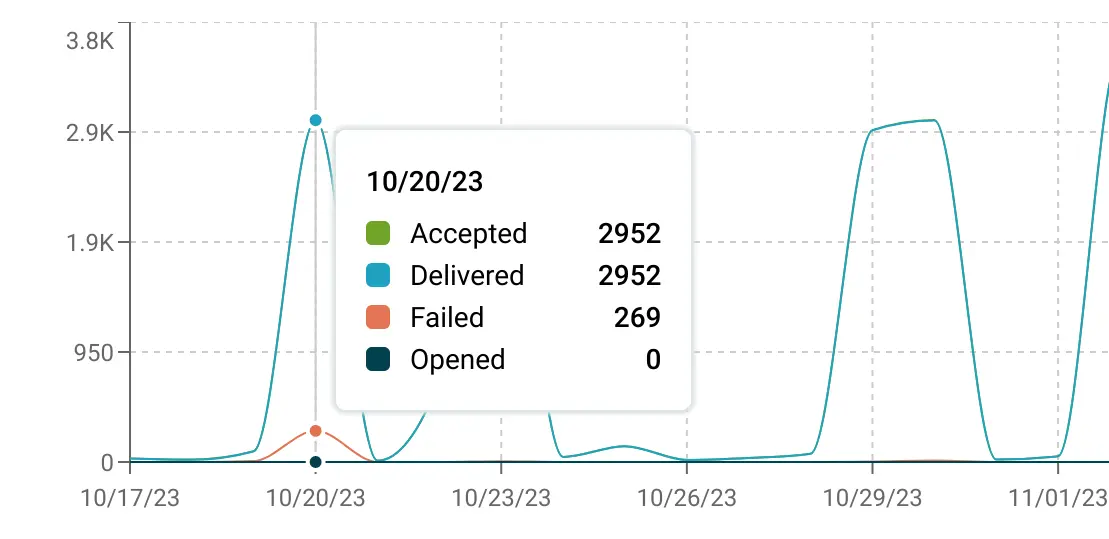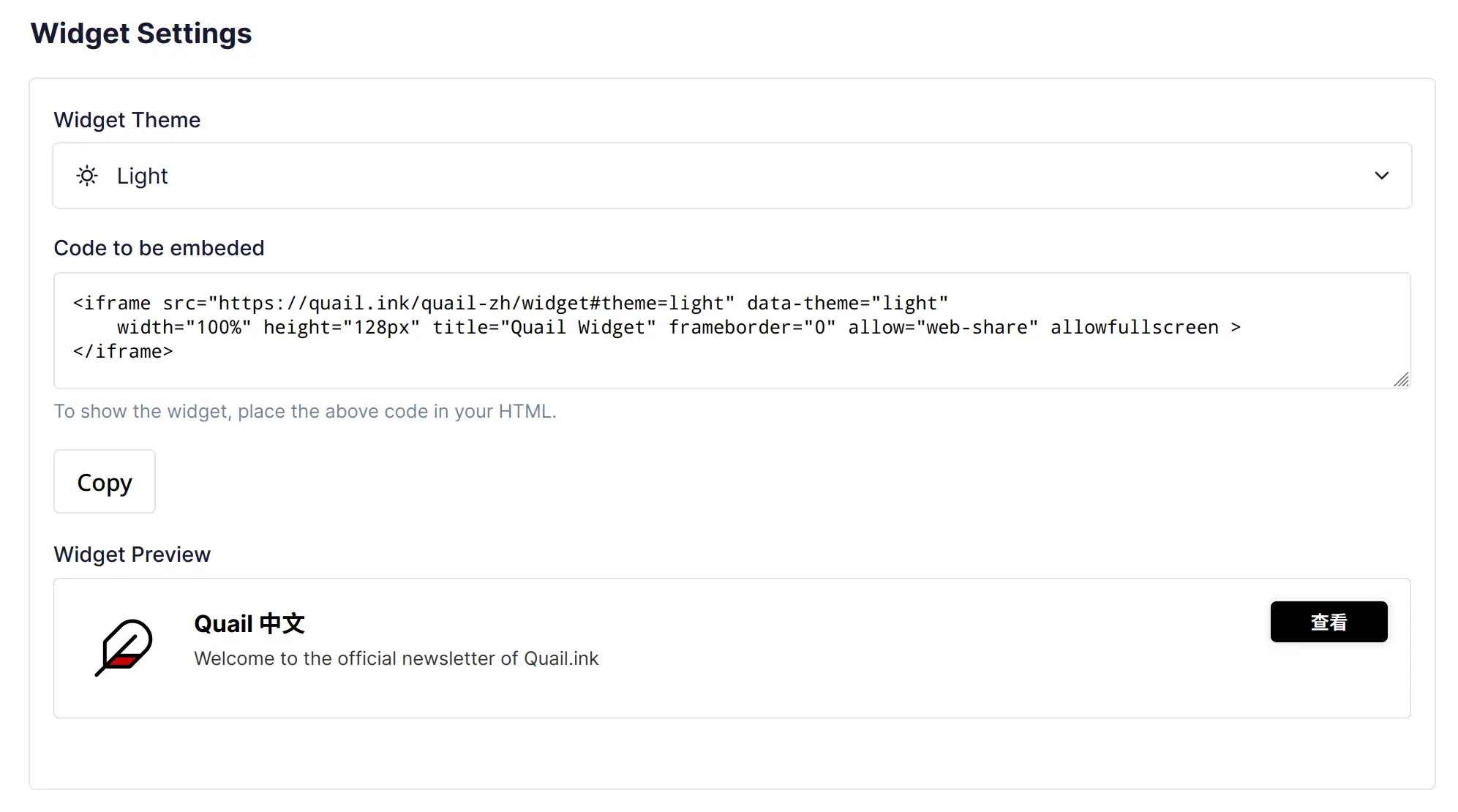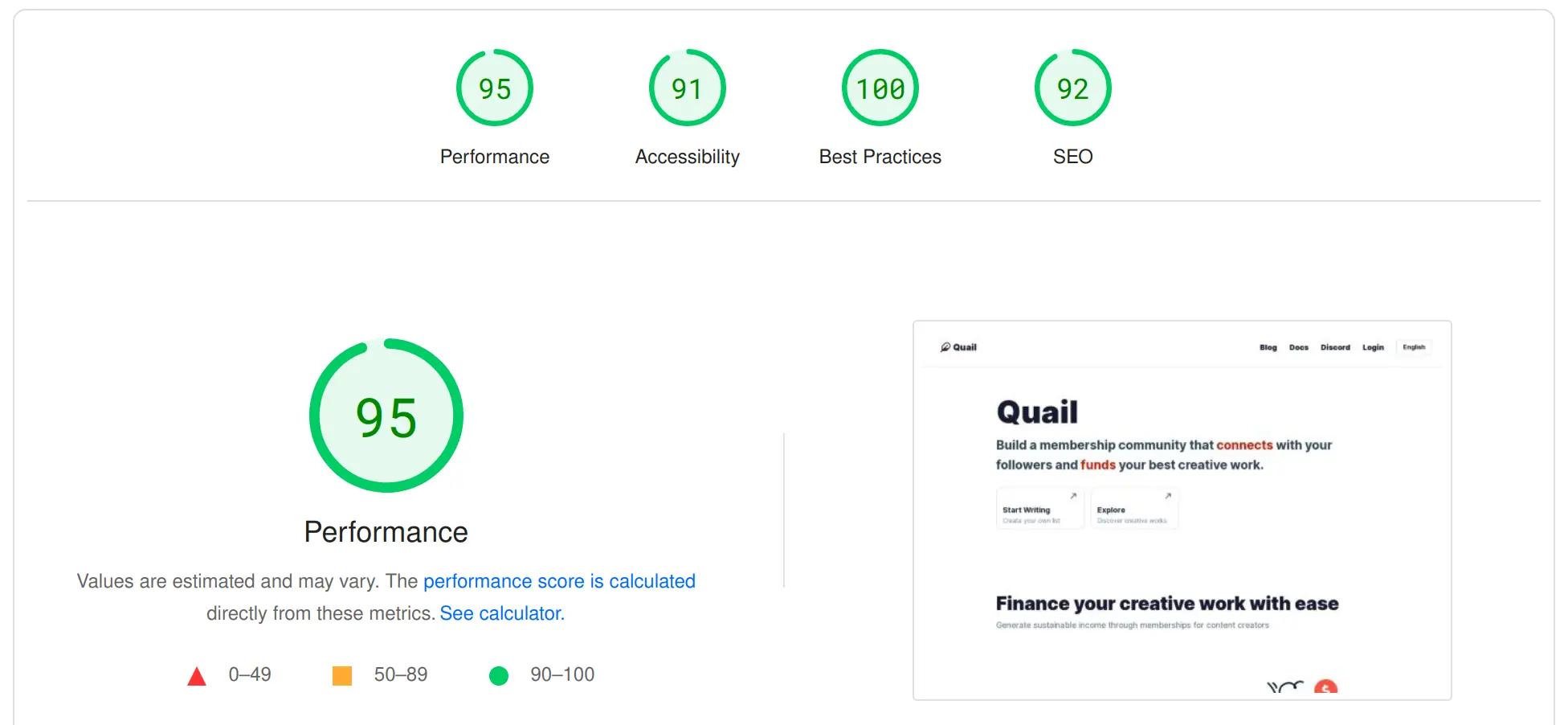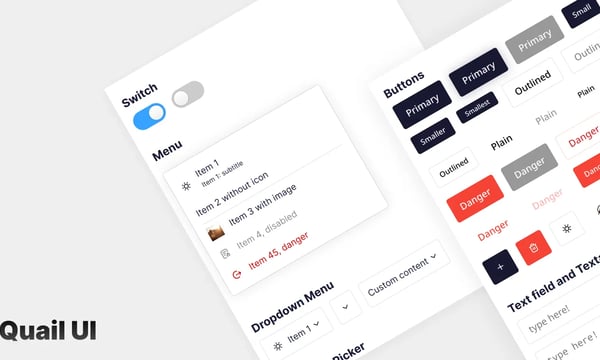In last week's "Weekly", I asked a favor for everyone to help unclassify some emails from Quail as spam, and there was a reason for it.
Over the last weekend, I noticed that there were over 200 failed delivery emails, all of them to Gmail and Hotmail/Outlook addresses:

So, I contacted the customer support of the email service provider. They told me that they had suddenly received many email rejection reports from Outlook, possibly due to an update in Microsoft's anti-spam policy. Then, I took the following actions:
- Submitted a ticket to Microsoft Support1.
- Joined the Microsoft SNDS program2.
- Set up a reverse DNS record.
- Set up a new sending IP and began warming it up.
Currently, the failure rate of sending has dropped back to normal levels.
Additionally, I've opened a support email: [email protected]. If any readers or authors find out about or receive feedback that an Email could not be delivered or received, please inform me, and I will handle it.
Stripe Support
In Weekly #18, I mentioned a new plan for Stripe support. The first phase of development is now complete, and all tests have been finished. From next month, we will gradually open it to our current authors.
The new Stripe support will reduce transaction fees, from 5%+50¢ to 3.6%, and will offer two different settlement methods:
- Users settle with Quail through Stripe, then Quail settles with the authors.
- Users settle with both Quail and the authors through Stripe at the same time. This requires authors to create a Stripe Express accounts, similar to the way Twitter and Substack do.
Not everyone is very clear about what Stripe Express is. Let me explain:
- Stripe provides a services for payment settlements, i.e., handling customer payments and then settling with the merchant.
- Normally, when customers place orders, they actually pay through Stripe. After Stripe handles all the trivial things , the money is settled with the merchant and finally delivered to the merchant's bank account.
- However, when the merchant itself is a platform, the goods and services are actually provided by merchants on the platform. After customers place orders, the platform needs to settle with the merchants again, which involves "secondary settlement".
- "Secondary settlement" can cause some complex issues, so some financial institutions may provide solutions to handle this scenario, essentially involving licensed financial institutions to manage these funds.
- Stripe Express is essentially a "secondary settlement" solution. After customers place orders, settlement is made separately to the platform and the merchant. Funds are managed by Stripe before sending to the bank accounts of the platform and the merchant.
I know Stripe Express is not very friendly to the people live in mainland China, but I still recommend that authors who can choose the second method, as it is more beneficial for Quail and the authors |•'-'•)。
New Embed Objects
Thanks to goldmark-enclave, we can now embed Quail's own Lists and Posts into the posts now. The syntax is the same as the image, and other embedded types:
// Embedding a list

// Embedding a post

It will output as follows:
Of course, you can also append ?theme=dark to the end of URL to apply a dark theme:
Quail Widget
Since it's possible to embed in the main text, it's also possible to embed Quail's Widget in any web page. In "List Settings - Widget Settings" you can find an interface as shown below:

Select the theme, copy the code, and you can embed Quail's Widget into any web pages.
Official Website and Twitter Account
The previous official website was a Single Page Application.
This week, it was changed to a static page, which significantly improved performance. And it should also be much better for SEO:

Additionally, some external links are listed on the official website, including Twitter, Discord, Telegram, Github, AlternativeTo, and SaaShub. Everyone is welcome to follow.
I anticipated the issue of email deliverability, but it wasn't a problem due to the smaller scale of users before. Thankfully, from the beginning, I have been monitoring email reports, abuse, and anti-spam, so the impact this time was not significant.






